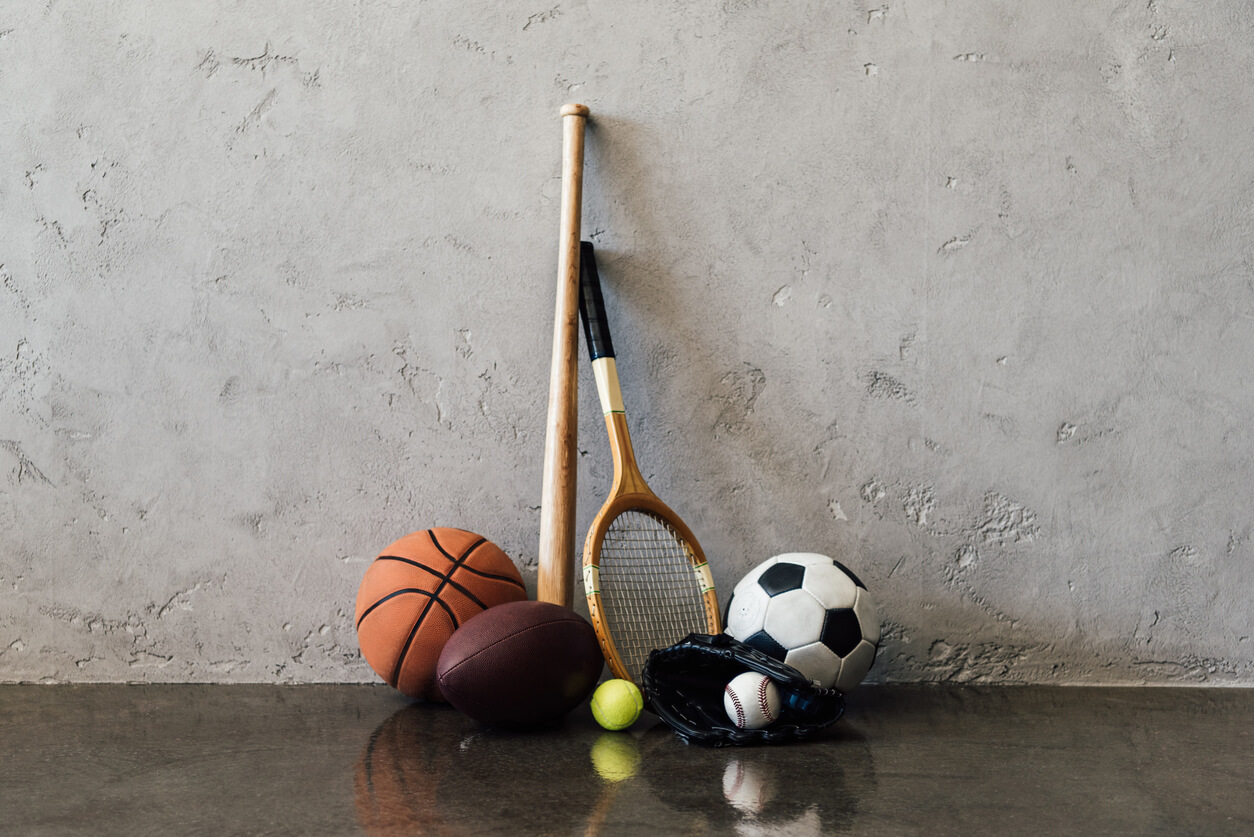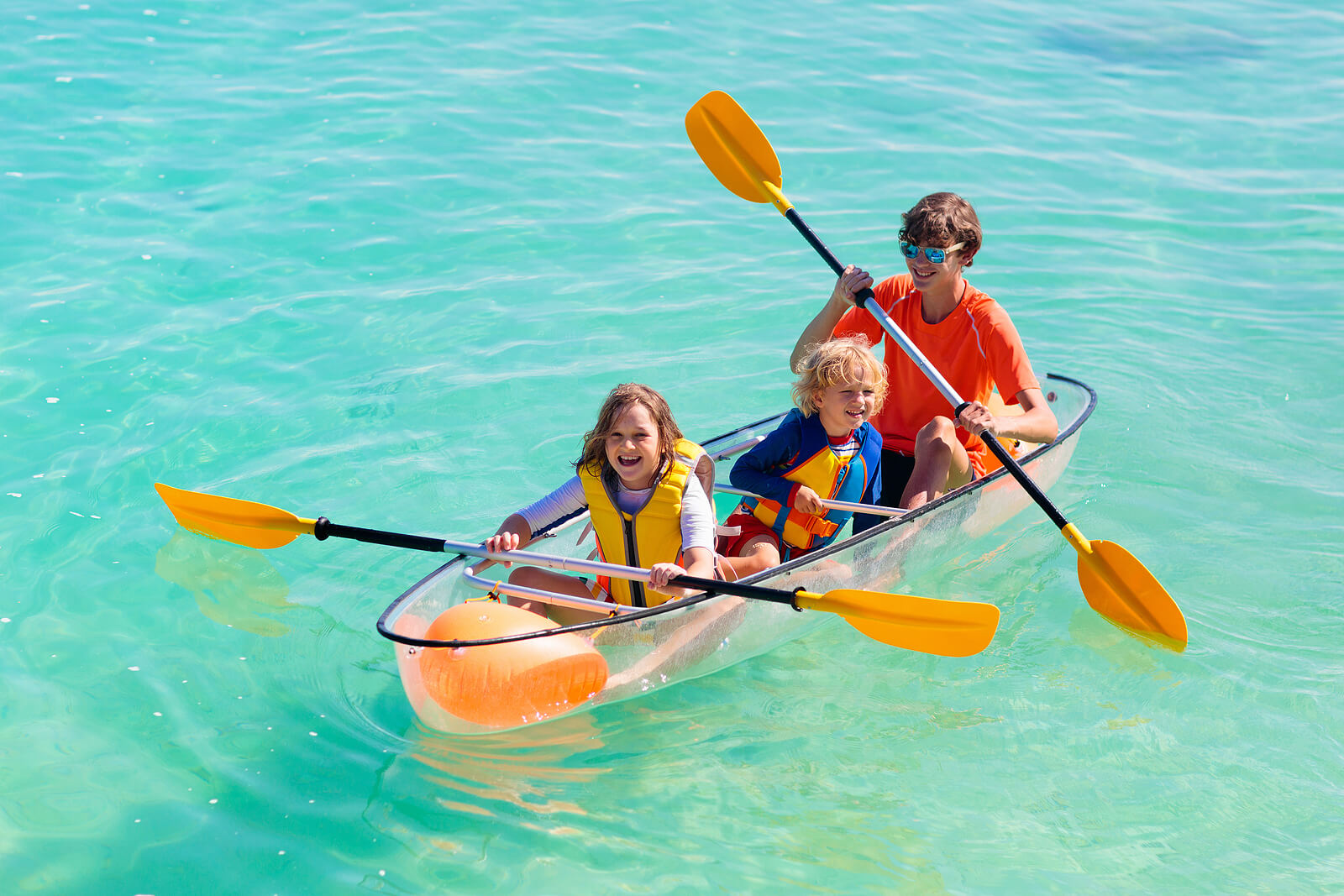The Most Suitable Sport for Your Child According to Their Personality


Written and verified by degree in physical education and sports Andrés Felipe Cardona Lenis
The most suitable sport for your child can be chosen according to their personality, as the way they behave has specific characteristics that influence their tastes and decisions.
Pigeonholing children isn’t entirely positive, but it’s impossible not to associate behavior with the way of being and the interests of a person. Therefore, the calmest and most introverted little ones tend to look for quieter activities, while the most effusive ones like the most energetic proposals.
Next, we’re going to reflect on the different sports and the personality traits of those who practice them. Are you ready?
Choosing the most suitable sport according to your child’s personality
The personality of children is closely related to the way they behave most of the time. And for this reason, the recommendations that we’ll offer you below have to do with this idea. However, this doesn’t mean that a child can’t choose something else.
It’s worth mentioning that the choice of sports should be based on the child’s taste, under the supervision and endorsement of their respective parents.

You may be interested in: 6 Adventure Sports for Children
Introverted children
Normally, introverted children tend to socialize little and even stand out as quiet and serene people. Despite this, they don’t live in total solitude, but rather maintain a smaller social circle.
As a parent, your goal is to improve your children’s social skills. But be careful! It’s not about forcing them to establish a friendship with other children, but about promoting activities that reinforce this aspect.
With that in mind, team sports are recommended, such as soccer, basketball, or the like. Probably at first, it will become complex for your children, but over time, their interpersonal relationships will improve.
Overconfident kids
Overconfident children are characterized as outgoing and energetic. Basically, this type of personality ‘pushes’ them towards daring and extreme activities.
Perhaps the most appropriate sport for this class of children is one that challenges them. The most timely recommendations lean toward gymnastics, contact sports (such as rugby or American football), or combat sports (such as karate or mixed martial arts).
Children with scattered attention
Being distracted is typical of human beings and can occur at any age. However, scattered attention is usually more marked in some children, to the point of being recognized as a trait related to their personality.
In that case, the most suitable sports for children are swimming, cycling, or athletics. These disciplines require a high level of concentration, which is interesting but very useful.
At first, the progress is likely to be very poor, but over time, you’ll be able to see how your children are advancing in mastering this skill.
Focused or perfectionistic children
Excessively perfectionistic children are characterized by being controlling and even planning their activities. Usually, they also have a great capacity for self-control.
The most suitable sport for this type of personality is one that’s done individually. Disciplines such as table or field tennis, as well as gymnastics or chess are the most recommended.
These recommendations are given based on the child’s ability to manage their emotions. Being executed by themself, it’s much easier for them to control what happens on their side of the field.
Other influencing factors
Personality type is perhaps one of the most influential factors when choosing a sport. However, there are other important aspects when making a decision.
- Age: This factor is decisive when choosing a sports activity, as many disciplines require a body size or some specific physical capacity that may not be fully developed yet.
- The environment: The context in which the sporting activity takes place is key. For example, the weather may limit the practice of some outdoor sports or require special equipment that’s not available.

The most suitable sport, according to personality and tastes
Personality is a very relevant factor when choosing a sport. Despite this, relying on the interests and tastes of children is much more valuable.
You shouldn’t force your children to play a sport with which they don’t feel comfortable or that doesn’t motivate them. Try to build on the recommendations made above, but don’t ignore your child’s wishes. After all, they’ll be the ones who have to participate.
The most suitable sport for your child can be chosen according to their personality, as the way they behave has specific characteristics that influence their tastes and decisions.
Pigeonholing children isn’t entirely positive, but it’s impossible not to associate behavior with the way of being and the interests of a person. Therefore, the calmest and most introverted little ones tend to look for quieter activities, while the most effusive ones like the most energetic proposals.
Next, we’re going to reflect on the different sports and the personality traits of those who practice them. Are you ready?
Choosing the most suitable sport according to your child’s personality
The personality of children is closely related to the way they behave most of the time. And for this reason, the recommendations that we’ll offer you below have to do with this idea. However, this doesn’t mean that a child can’t choose something else.
It’s worth mentioning that the choice of sports should be based on the child’s taste, under the supervision and endorsement of their respective parents.

You may be interested in: 6 Adventure Sports for Children
Introverted children
Normally, introverted children tend to socialize little and even stand out as quiet and serene people. Despite this, they don’t live in total solitude, but rather maintain a smaller social circle.
As a parent, your goal is to improve your children’s social skills. But be careful! It’s not about forcing them to establish a friendship with other children, but about promoting activities that reinforce this aspect.
With that in mind, team sports are recommended, such as soccer, basketball, or the like. Probably at first, it will become complex for your children, but over time, their interpersonal relationships will improve.
Overconfident kids
Overconfident children are characterized as outgoing and energetic. Basically, this type of personality ‘pushes’ them towards daring and extreme activities.
Perhaps the most appropriate sport for this class of children is one that challenges them. The most timely recommendations lean toward gymnastics, contact sports (such as rugby or American football), or combat sports (such as karate or mixed martial arts).
Children with scattered attention
Being distracted is typical of human beings and can occur at any age. However, scattered attention is usually more marked in some children, to the point of being recognized as a trait related to their personality.
In that case, the most suitable sports for children are swimming, cycling, or athletics. These disciplines require a high level of concentration, which is interesting but very useful.
At first, the progress is likely to be very poor, but over time, you’ll be able to see how your children are advancing in mastering this skill.
Focused or perfectionistic children
Excessively perfectionistic children are characterized by being controlling and even planning their activities. Usually, they also have a great capacity for self-control.
The most suitable sport for this type of personality is one that’s done individually. Disciplines such as table or field tennis, as well as gymnastics or chess are the most recommended.
These recommendations are given based on the child’s ability to manage their emotions. Being executed by themself, it’s much easier for them to control what happens on their side of the field.
Other influencing factors
Personality type is perhaps one of the most influential factors when choosing a sport. However, there are other important aspects when making a decision.
- Age: This factor is decisive when choosing a sports activity, as many disciplines require a body size or some specific physical capacity that may not be fully developed yet.
- The environment: The context in which the sporting activity takes place is key. For example, the weather may limit the practice of some outdoor sports or require special equipment that’s not available.

The most suitable sport, according to personality and tastes
Personality is a very relevant factor when choosing a sport. Despite this, relying on the interests and tastes of children is much more valuable.
You shouldn’t force your children to play a sport with which they don’t feel comfortable or that doesn’t motivate them. Try to build on the recommendations made above, but don’t ignore your child’s wishes. After all, they’ll be the ones who have to participate.
All cited sources were thoroughly reviewed by our team to ensure their quality, reliability, currency, and validity. The bibliography of this article was considered reliable and of academic or scientific accuracy.
- Lagos, R. Et al. (2019). Comportamiento en las funciones ejecutivas de niños tenimesistas durante competencias. Aletheia. Revista de Desarrollo Humano, Educativo y Social Contemporáneo. Disponible en: http://www.scielo.org.co/scielo.php?script=sci_arttext&pid=S2145-03662019000100147
- Valerazo, C. Et al. (2020). Caracterización general y evolución de la personalidad
en la primera infancia. Horizontes Revista de Investigación en Ciencias de la Educación. Disponible en: http://www.scielo.org.bo/scielo.php?script=sci_arttext&pid=S2616-79642020000400010&lng=es&nrm=iso
This text is provided for informational purposes only and does not replace consultation with a professional. If in doubt, consult your specialist.








